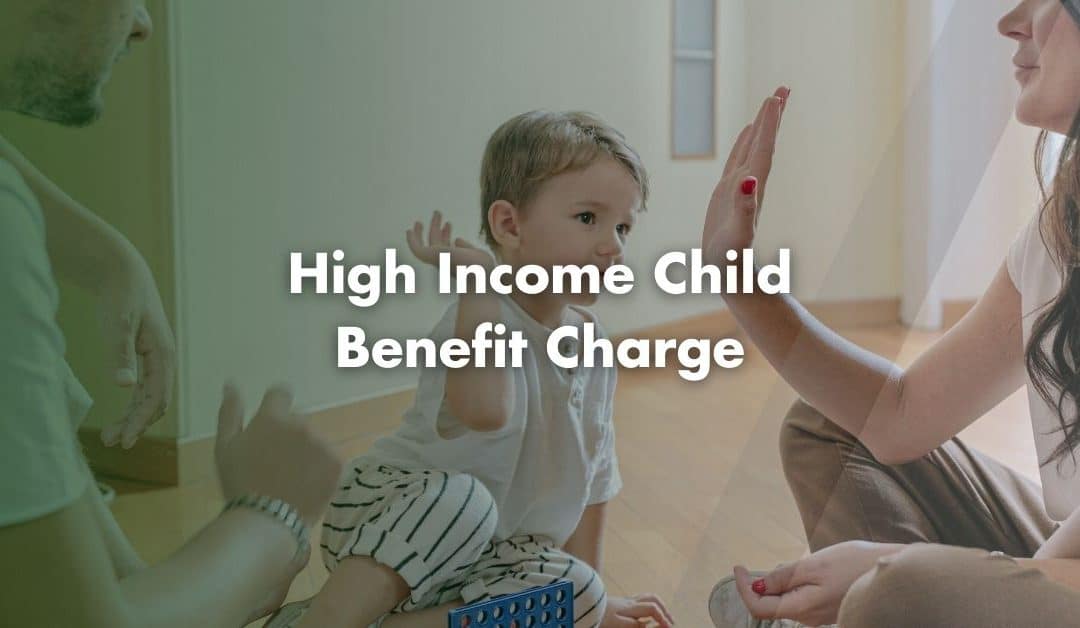Child Benefit is valuable support for families raising children in the UK. However, if your income is above a certain threshold, you may need to repay some or all of it through the High Income Child Benefit Charge (HICBC).
What is the High Income Child Benefit Charge?
Since April 2024, HMRC has applied the High Income Child Benefit Charge to households where at least one taxpayer earns more than £60,000. The charge applies to the higher earner in the household and increases gradually with income.
HMRC charges 1% of your Child Benefit for every £200 you earn above the threshold, if your adjusted net income exceeds £60,000. Once your income reaches £80,000 or more, you repay the full amount of Child Benefit received.
Who Needs to Pay the High Income Child Benefit Charge?
You must pay the High Income Child Benefit Charge if:
- You or your partner have an adjusted net income over £60,000
- You or your partner receive Child Benefit, or someone else pays the benefit for a child who lives with you
It does not matter whether the child is biologically yours. If the child lives with you and you benefit from the payments, you may be responsible for the charge. The partner with the higher income pays it.
How Does HMRC Calculate the Charge?
The amount you pay back depends on how much you earn:
- You must repay 1% of the Child Benefit received for every £200 you earn above £60,000
- You must repay the entire amount at £80,000 or more
For example: You will need to repay 50% of your Child Benefit if your income is £70,000. The tapered approach ensures a gradual reduction instead of a sudden loss of support.
What Counts as Income?
To determine whether you exceed the threshold, calculate your “adjusted net income”. This is your total taxable income before Personal Allowances, minus specific deductions.
Income includes:
- Salaries and wages
- Self-employed profits – Read More: Self-Employed Child Benefit
- Rental income
- Interest and dividends
You can lower your adjusted income with:
- Pension contributions
- Gift Aid donations
- Trading losses
Your Choices If You Earn Over £60,000
If your income is over the threshold, you can:
- Continue receiving Child Benefit and pay the charge through your tax return
- Claim Child Benefit but opt out of receiving payments, avoiding the charge
Even if you opt out, you need to submit a claim. This lets you:
- Earn National Insurance credits toward your State Pension
- Ensure your child automatically receives a National Insurance number before turning 16
Why It Still Pays to Claim Child Benefit
Many high earners choose not to claim because of the charge. But claiming bring long-term benefits:
- National Insurance credits for the parent claiming, which can add up to thousands in future pension income
- Easy National Insurance number registration for your child at age 16
Even if you plan to opt out, ticking the correct box on the claim form ensures you receive these perks.
How to Pay the High Income Child Benefit Charge
If you are liable for High Income Child Benefit Charge:
- Register for Self Assessment with HMRC by 5th October following the tax year
- Complete a tax return annually
- Pay any tax you owe by the deadline
Missing deadlines can lead to penalties of up to 30% of the amount due.
Income Between £50,000 and £60,000
There is good news if you earn between £50,000 and £60,000. Before April 2024, you had to start repaying Child Benefit at £50,000. Now, you can receive the full amount without owing a penny in tax.
If you previously opted out of claiming, you might want to reconsider. You can now backdate new claims by up to three months or to your child’s birth date, whichever is later.
Income Over £80,000
If you or your partner earns £80,000 or more, you will repay all of the benefit. But that does not mean you should not claim it.
Filing a claim and opting out of payments means you can still:
- Earn National Insurance credits
- Ensure your child gets their National Insurance number automatically
This is especially helpful if one partner does not work or earns below £123 per week, the threshold for automatic National Insurance credits.
What If Your Income Changes?
Income can fluctuate from year to year. If it drops below £60,000 for an entire tax year, the charge no longer applies.
You can restart or stop receiving Child Benefit at any time. If your situation changes and you no longer need to file a tax return, you must notify HMRC to avoid unnecessary paperwork or penalties.
Contact Us
We are not just accountants; we are Chartered Accountants with one of the most reputable and premium accounting bodies. We are registered and regulated by ACCA; so you can rest assured that you are in good hands. Knowing this, don’t hesitate to get in touch with us if you require assistance: Pi Accountancy | Contact Us
This article is for general informational purposes only and does not constitute legal or financial advice. While we aim to keep our content up to date and accurate, UK tax laws and regulations are subject to change. Please speak to an accountant or tax professional for advice tailored to your individual circumstances. Pi Accountancy accepts no responsibility for any issues arising from reliance on the information provided.

